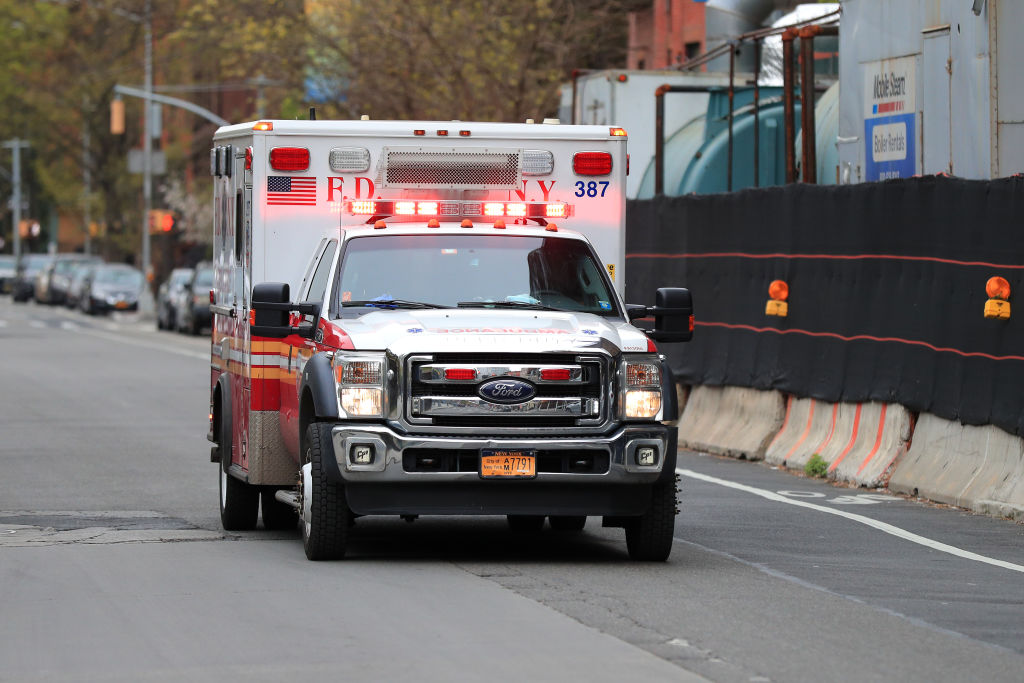States lagging in testing are attributing a far lower percentage of excess deaths to COVID-19 than the national average


A free daily email with the biggest news stories of the day – and the best features from TheWeek.com
You are now subscribed
Your newsletter sign-up was successful
The U.S. was bracing for the number of COVID-19 fatalities to surpass 100,000 for quite some time before it officially crossed the threshold earlier this week, though a new analysis shows that the death toll likely reached the mark weeks earlier, The Washington Post reports.
The analysis, conducted for the Post by a research team at the Yale School of Public Health, estimates that there were 101,600 excess deaths between March 1 and May 9, which is about 26,000 more than were officially attributed to the coronavirus during that period. That doesn't mean that all 26,000 deaths were caused by the virus, but it's likely many of them were related to the epidemic in some capacity. For example, people with unrelated illnesses may have refrained from seeking necessary medical attention because of concerns about the virus' presence in the health care system.
Most of the surges in deaths occurred in states that experienced noticeably worse outbreaks, like New York and New Jersey, while several states like Alaska and Utah either had fewer deaths than would be expected or did not have an unusual excess mortality during the timeframe.
The Week
Escape your echo chamber. Get the facts behind the news, plus analysis from multiple perspectives.

Sign up for The Week's Free Newsletters
From our morning news briefing to a weekly Good News Newsletter, get the best of The Week delivered directly to your inbox.
From our morning news briefing to a weekly Good News Newsletter, get the best of The Week delivered directly to your inbox.
But the analysis did find that, among those states with lower excess deaths, there may be an undercounting when it comes to what percentage of those fatalities are related to COVID-19. Nationally, the coronavirus accounted for 74 percent of excess fatalities, but in South Carolina, Arizona, and Texas — all states that rank toward the bottom in testing prevalence — that number was 30, 40, and 39 percent, respectively. One of the research team members, Farzad Mostashari, told the Post the testing gap could be a contributing factor in the discrepancy. Read more at The Washington Post.
A free daily email with the biggest news stories of the day – and the best features from TheWeek.com
Tim is a staff writer at The Week and has contributed to Bedford and Bowery and The New York Transatlantic. He is a graduate of Occidental College and NYU's journalism school. Tim enjoys writing about baseball, Europe, and extinct megafauna. He lives in New York City.
-
 How the FCC’s ‘equal time’ rule works
How the FCC’s ‘equal time’ rule worksIn the Spotlight The law is at the heart of the Colbert-CBS conflict
-
 What is the endgame in the DHS shutdown?
What is the endgame in the DHS shutdown?Today’s Big Question Democrats want to rein in ICE’s immigration crackdown
-
 ‘Poor time management isn’t just an inconvenience’
‘Poor time management isn’t just an inconvenience’Instant Opinion Opinion, comment and editorials of the day
-
 Trump HHS slashes advised child vaccinations
Trump HHS slashes advised child vaccinationsSpeed Read In a widely condemned move, the CDC will now recommend that children get vaccinated against 11 communicable diseases, not 17
-
 FDA OKs generic abortion pill, riling the right
FDA OKs generic abortion pill, riling the rightSpeed Read The drug in question is a generic version of mifepristone, used to carry out two-thirds of US abortions
-
 RFK Jr. vaccine panel advises restricting MMRV shot
RFK Jr. vaccine panel advises restricting MMRV shotSpeed Read The committee voted to restrict access to a childhood vaccine against chickenpox
-
 Texas declares end to measles outbreak
Texas declares end to measles outbreakSpeed Read The vaccine-preventable disease is still spreading in neighboring states, Mexico and Canada
-
 RFK Jr. shuts down mRNA vaccine funding at agency
RFK Jr. shuts down mRNA vaccine funding at agencySpeed Read The decision canceled or modified 22 projects, primarily for work on vaccines and therapeutics for respiratory viruses
-
 Measles cases surge to 33-year high
Measles cases surge to 33-year highSpeed Read The infection was declared eliminated from the US in 2000 but has seen a resurgence amid vaccine hesitancy
-
 Kennedy's vaccine panel signals skepticism, change
Kennedy's vaccine panel signals skepticism, changeSpeed Read RFK Jr.'s new vaccine advisory board intends to make changes to the decades-old US immunization system
-
 Kennedy ousts entire CDC vaccine advisory panel
Kennedy ousts entire CDC vaccine advisory panelspeed read Health Secretary RFK Jr. is a longtime anti-vaccine activist who has criticized the panel of experts
